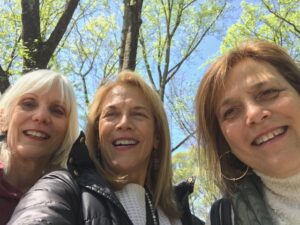 Writing a memoir takes courage. It often means taking a deep dive into the past and sharing secrets with strangers, family and friends. Judgment of your work and of your life looms large–another reason why you have to be courageous. This past month I’ve been teaching thirteen brave women how to write a memoir. For most of the women, the topics they have chosen to write about requires delving deep into and making sense of childhood memories. Three of the women are writing about growing up with mothers who were mentally ill. They are on a rough road that will ultimately lead to healing. Processing memories and feelings that come up is not easy but it is possible.
Writing a memoir takes courage. It often means taking a deep dive into the past and sharing secrets with strangers, family and friends. Judgment of your work and of your life looms large–another reason why you have to be courageous. This past month I’ve been teaching thirteen brave women how to write a memoir. For most of the women, the topics they have chosen to write about requires delving deep into and making sense of childhood memories. Three of the women are writing about growing up with mothers who were mentally ill. They are on a rough road that will ultimately lead to healing. Processing memories and feelings that come up is not easy but it is possible.
When I wrote my adoption memoir, I cried every time I sat down. Often, I wasn’t sure why there were so many tears, but I let them flow until they stopped. Then I wrote. Each word helped me makes sense of the abandonment I experienced as an infant. It took courage to write this story.
Some memoirs are on lighter topics. One women is writing about her childhood in India before she moved to America. The youngest of nine children raised by a single mother with a third grade education, her success story is nothing short of miraculous. Topics covered during this most recent class are: online dating, fraud, quirky friends, watching a friend battle AIDS, an illustrious business career and open marriage. These are the stories shared by brave women–some for posterity others for publication. I feel so privileged to shepherd the process. Once everyone knows the rules for this type of writing, they practice the craft word-by-word, paragraph-by-paragraph, scene-by-scene. For all topics, courage is required to tell a story with passion and honesty.
To make it easy to get feedback on their writing, I encourage people to write every day and share in a private Facebook group. Reading what others write is helpful. It inspires confidence and fosters honesty. It’s not easy to reveal inner thoughts and feelings and seeing someone else do it helps you to take a risk. As author Anne Lamott says, “You own every that happened to you. Tell your stories. if people wanted you to write warmly about them, they should have behaved better.” Once you gather courage, you can write your truth–the story you were meant to tell.
If you want to write a memoir, here is how to get started:
1. Follow Habit #2 from Stephen Covey’s The 7Habits of Highly Effective People. “Begin with the end in mind.” Begin each project with a clear vision of your desired direction and destination. Then, make it happen. My dad used to say, “If you don’t know where you’re going, it doesn’t matter what road you take, any road will get you there.” Before you begin to write, be clear about your destination, your goal.
2. Set aside a time and place to write every day–even if it’s only five or ten minutes–and write. Writing is a craft and the best way to perfect the craft is to develop a writing habit.
3. Write with reckless abandon and without judgment. Let the worlds flow without paying attention to grammar, spelling, syntax or the voice of your high school English teacher. Once you have a “shitty” first draft, you have something to work with.
# # #
Jan Fishler is the author of Searching for Jane, Finding Myself (an adoption memoir), Don’t Stop Now: Making the Most of the Rest of Your Life, Flex Your Writing Muscle (365 Writing Prompts), and PTSD: Lessons From Vietnam. She is a motivational speaker who also teaches writing classes online. More about Jan at www.JanFishler.net
 Memoir, “a version of events as the author remembers them.” That means there is a lot of wiggle room when it comes to writing a memoir. That’s why I like the genre so much. Written in the first person, a good memoir reads like fiction. It’s an opportunity to write a story with the added the luxury of hindsight provided by your older and hopefully wiser self.
Memoir, “a version of events as the author remembers them.” That means there is a lot of wiggle room when it comes to writing a memoir. That’s why I like the genre so much. Written in the first person, a good memoir reads like fiction. It’s an opportunity to write a story with the added the luxury of hindsight provided by your older and hopefully wiser self.




